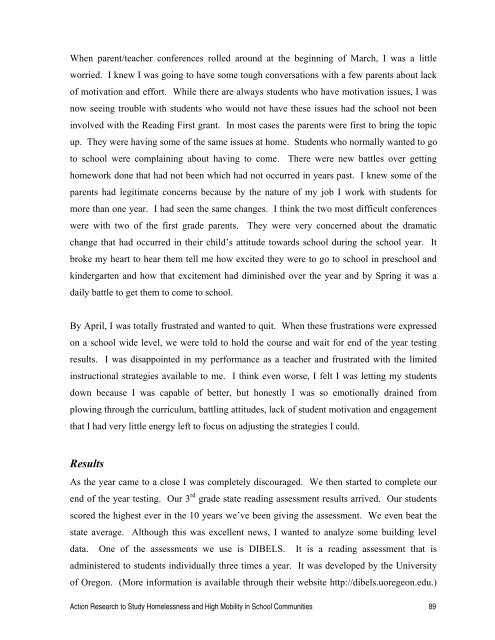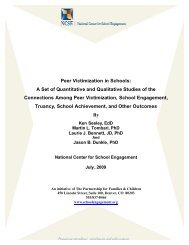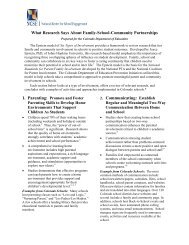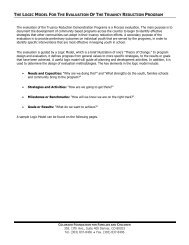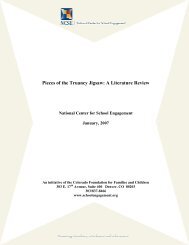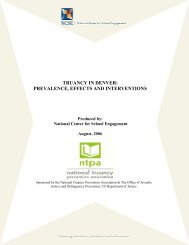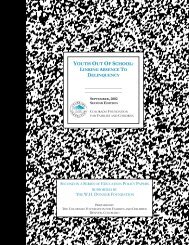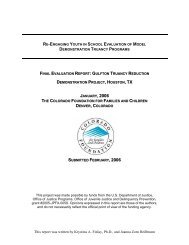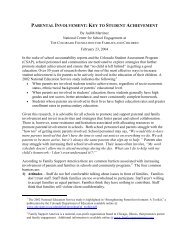Section 1: Academic Achievement - National Center for School ...
Section 1: Academic Achievement - National Center for School ...
Section 1: Academic Achievement - National Center for School ...
You also want an ePaper? Increase the reach of your titles
YUMPU automatically turns print PDFs into web optimized ePapers that Google loves.
When parent/teacher conferences rolled around at the beginning of March, I was a little<br />
worried. I knew I was going to have some tough conversations with a few parents about lack<br />
of motivation and ef<strong>for</strong>t. While there are always students who have motivation issues, I was<br />
now seeing trouble with students who would not have these issues had the school not been<br />
involved with the Reading First grant. In most cases the parents were first to bring the topic<br />
up. They were having some of the same issues at home. Students who normally wanted to go<br />
to school were complaining about having to come. There were new battles over getting<br />
homework done that had not been which had not occurred in years past. I knew some of the<br />
parents had legitimate concerns because by the nature of my job I work with students <strong>for</strong><br />
more than one year. I had seen the same changes. I think the two most difficult conferences<br />
were with two of the first grade parents. They were very concerned about the dramatic<br />
change that had occurred in their child’s attitude towards school during the school year. It<br />
broke my heart to hear them tell me how excited they were to go to school in preschool and<br />
kindergarten and how that excitement had diminished over the year and by Spring it was a<br />
daily battle to get them to come to school.<br />
By April, I was totally frustrated and wanted to quit. When these frustrations were expressed<br />
on a school wide level, we were told to hold the course and wait <strong>for</strong> end of the year testing<br />
results. I was disappointed in my per<strong>for</strong>mance as a teacher and frustrated with the limited<br />
instructional strategies available to me. I think even worse, I felt I was letting my students<br />
down because I was capable of better, but honestly I was so emotionally drained from<br />
plowing through the curriculum, battling attitudes, lack of student motivation and engagement<br />
that I had very little energy left to focus on adjusting the strategies I could.<br />
Results<br />
As the year came to a close I was completely discouraged. We then started to complete our<br />
end of the year testing. Our 3 rd grade state reading assessment results arrived. Our students<br />
scored the highest ever in the 10 years we’ve been giving the assessment. We even beat the<br />
state average. Although this was excellent news, I wanted to analyze some building level<br />
data. One of the assessments we use is DIBELS. It is a reading assessment that is<br />
administered to students individually three times a year. It was developed by the University<br />
of Oregon. (More in<strong>for</strong>mation is available through their website http://dibels.uoregeon.edu.)<br />
Action Research to Study Homelessness and High Mobility in <strong>School</strong> Communities 89


